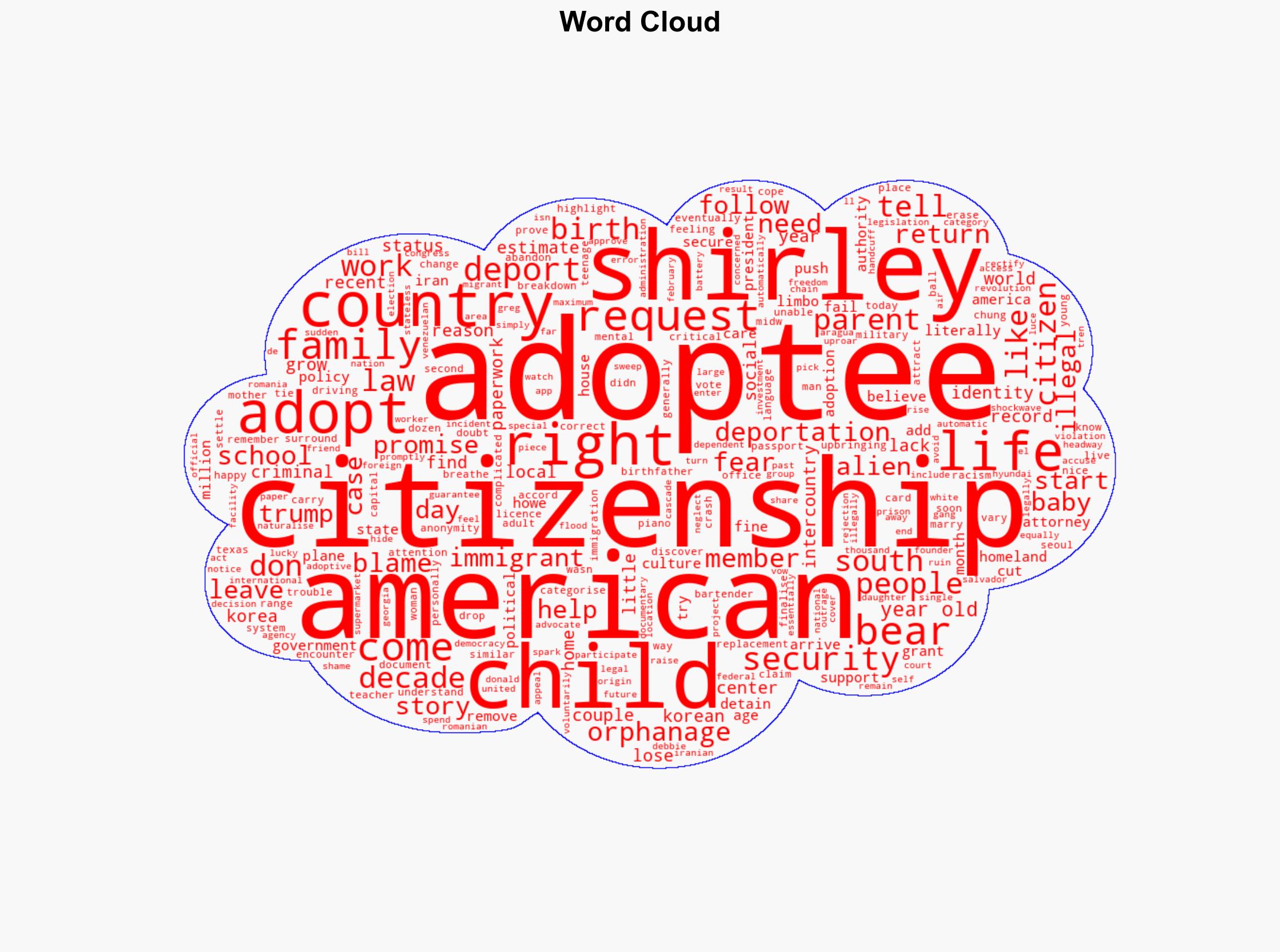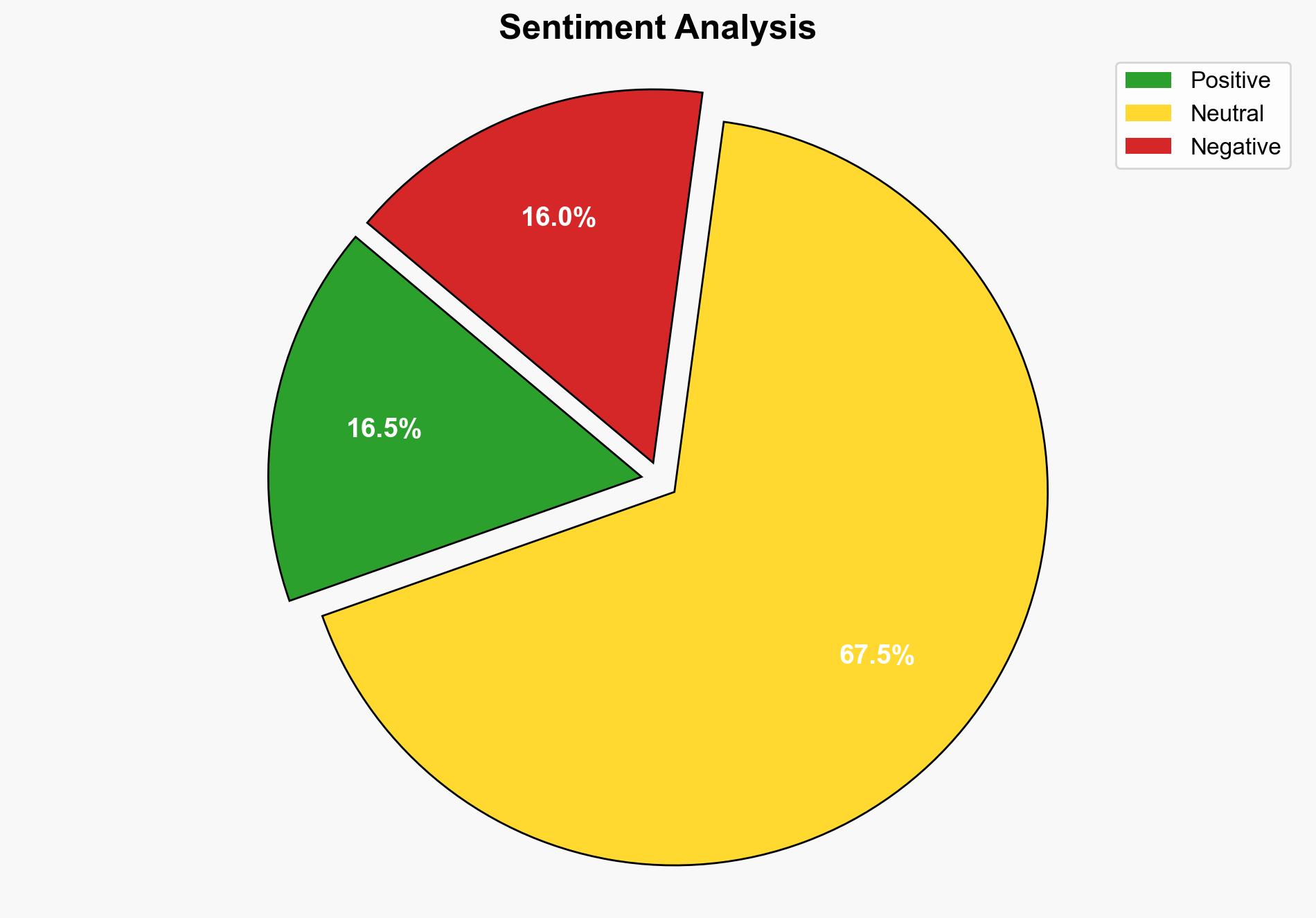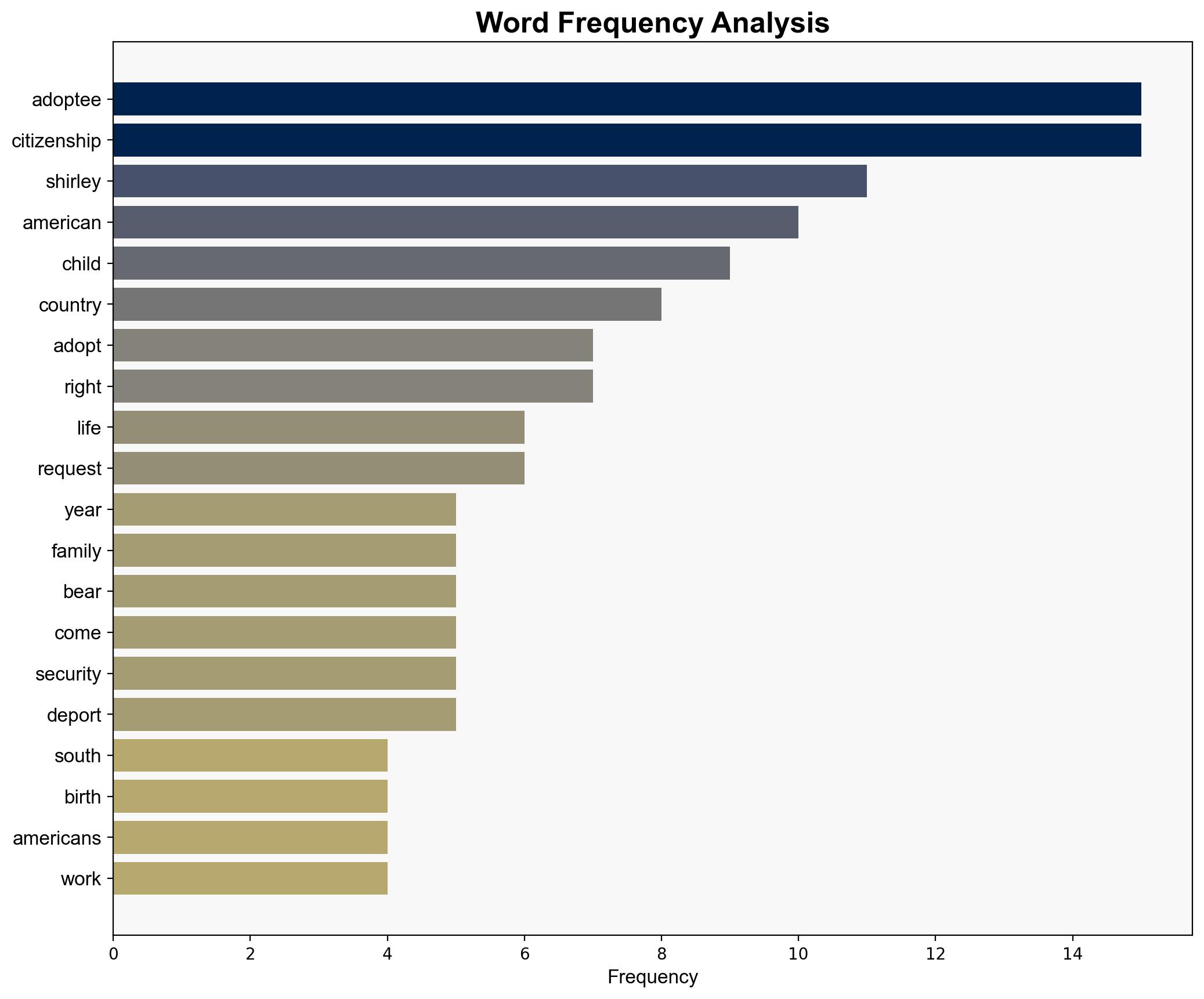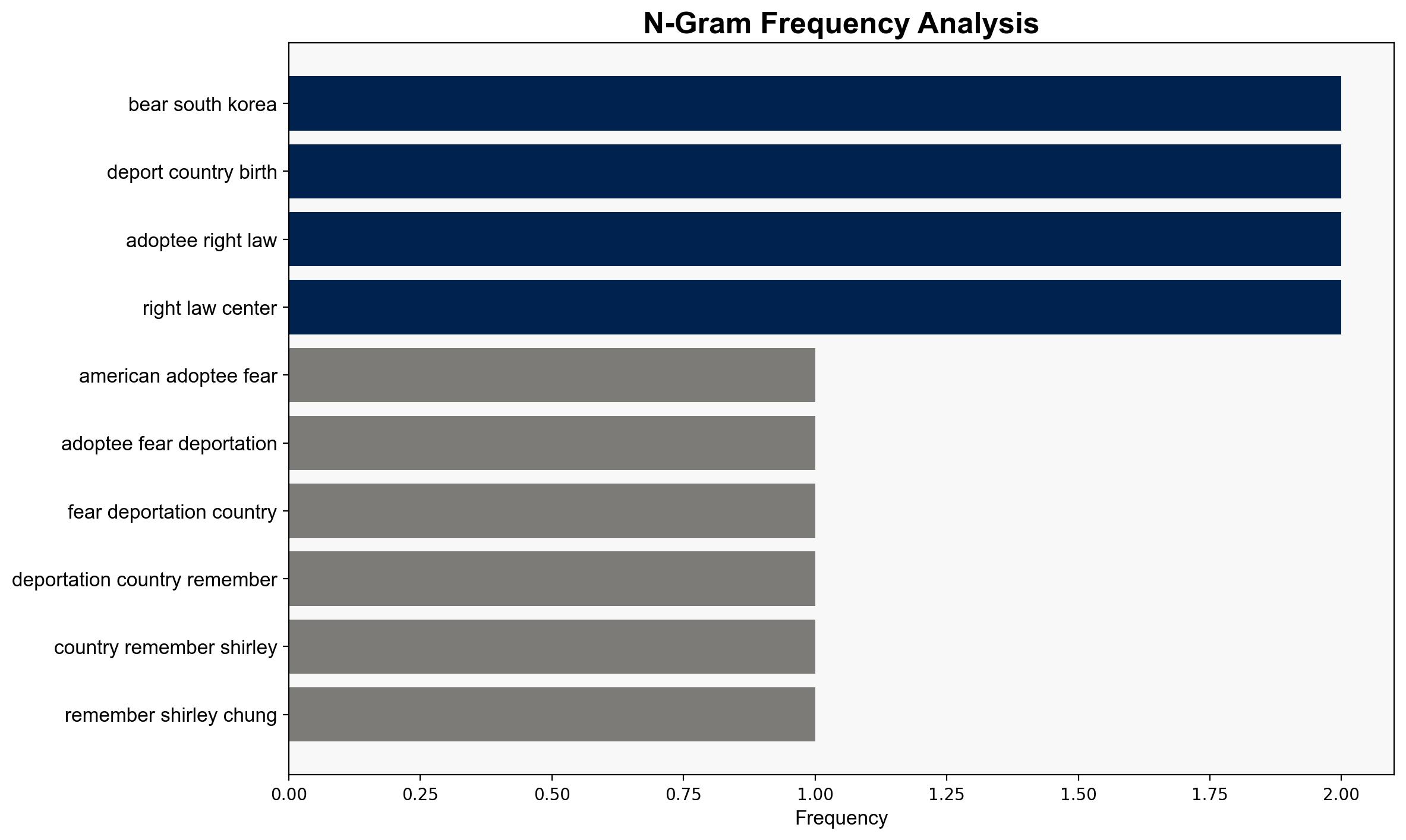The American adoptees who fear deportation to a country they can’t remember – BBC News
Published on: 2025-10-31
Intelligence Report: The American adoptees who fear deportation to a country they can’t remember – BBC News
1. BLUF (Bottom Line Up Front)
The most supported hypothesis is that the lack of automatic citizenship for intercountry adoptees poses a significant risk of deportation, which can lead to severe personal and societal consequences. The strategic recommendation is to advocate for legislative changes to ensure automatic citizenship for all intercountry adoptees, regardless of age, to mitigate these risks. Confidence level: High.
2. Competing Hypotheses
1. **Hypothesis A**: The current legal framework for intercountry adoptees is adequate, and issues arise primarily from administrative oversights and individual failures to secure citizenship documentation.
2. **Hypothesis B**: The legal framework is fundamentally flawed, lacking provisions for automatic citizenship for intercountry adoptees, leading to systemic risks of deportation and identity crises.
Using ACH 2.0, Hypothesis B is better supported due to consistent reports of adoptees facing deportation despite having lived their entire lives in the U.S. and the existence of legislative gaps highlighted by advocacy groups.
3. Key Assumptions and Red Flags
– **Assumptions**: It is assumed that adoptees are aware of their citizenship status and have access to necessary documentation. This may not be true for all individuals.
– **Red Flags**: The narrative of adoptees being deported despite long-term residency suggests systemic issues rather than isolated incidents. The lack of data on the exact number of affected individuals is a significant blind spot.
4. Implications and Strategic Risks
The potential deportation of adoptees can lead to human rights violations, psychological trauma, and international diplomatic tensions. It may also set a precedent affecting other immigrant groups. Failure to address this issue could result in increased advocacy and legal challenges, potentially straining governmental resources.
5. Recommendations and Outlook
- **Immediate Action**: Lobby for legislative reform to grant automatic citizenship to all intercountry adoptees, retroactively and proactively.
- **Best Case Scenario**: Successful reform leads to the resolution of citizenship issues for all adoptees, enhancing social stability and international reputation.
- **Worst Case Scenario**: Continued deportations result in significant public backlash and international criticism, damaging diplomatic relations.
- **Most Likely Scenario**: Incremental legal changes improve the situation for some adoptees, but systemic issues persist without comprehensive reform.
6. Key Individuals and Entities
– Shirley Chung: An adoptee facing citizenship challenges.
– Advocacy groups such as the Adoptee Rights Law Center.
7. Thematic Tags
immigration policy, human rights, legislative reform, intercountry adoption




